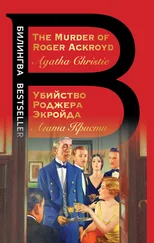Dyer scowls and then looks upon two Gentlemen in another Corner, who are inflamed with Liquor and speaking wildly. first gentleman. You hear this on Rep? second gentleman. Pozz. It was his Phizz and the Mobb saw it: it was in the News. As sure as Eggs are Eggs. first gent. Ah but these Eggs give me disconsolate Dreams, and make me melancholy for Days after. second gent. And do you know why you do not like Eggs? first gent. Why do I not like Eggs, sirrah? second gent. Because your Father was so often pelted with them! dyer. (To himself) There is nothing but Corruption withinne, a hollow sounding Box: whatsoever I see, whatsoever I hear, all Things seem to sound Corruption! (He turns towards Vannbrugghe, who has come back to the Table) What was I saying? vannbrugghe. You were extolling the Ancients. dyer. Yes, so I was. The Ancients wrote of General Passions, which are the same, but you wish only for that which is lively or new or surprizing. But the Ancients knew how Nature is a dark Room, and that is why their Plays will stand when even our Playhouses are crumbled into Dust: for their Tragedy reflects Corruption, and Men are the same now as they have ever been. The World is still mighty sick. Did you hear during the late Plague – vannbrugghe.
(Laughing) I had quite forgot that Distemper. dyer. -Did you hear of the Victim who persewed a young Girl, kissed her and then said, I have given you the Plague! Look here! And then he opened his Shirt to show her the fa tall Tokens. There is a Horrour and Loathsomeness there that must affect us all. vannbrugghe. (Aside) But there is a mixture of Delight in the Disgust it gives you. (To Dyer) I see, sir, that you are for strolling in Dirty Lanes and among the Cole-pits, like the Irish among their Boggs. dyer. Yes, for in such Places may the Truth be found. vannbrugghe. And so the Fumes issuing from a Jakes are for you Incense from an Altar: for they also have allwaies been the same! dyer. Should I peruse the casual Scratches and inside Daubings made upon the Walls, in order to take my Inspiration from their Novelty? vannbrugghe. (Growing impatient) There is nothing so pedantick as many Quotations, and your reverence for the Ancients is an excuse for meer Plagiarism. dyer. This is not so. (He gets up from the Table, walks awkwardly about, and then resumes his Seat) Even the magnificent Vergil has borrowed almost all his Works: his Eclogues from Theocritus, his Georgicks from Hesiod and Aratus, his Aeneid from Homer. Aristotle himself derived many things from Hippocrates, Pliny from Dioscorides, and we are assur'd that Homer himself built upon some Predecessors.
You will have Variety and Novelty, which is nothing but unruly Fancy. It is only from Imitation – vannbrugghe.
(Laughing) Plagiarism! dyer. (With a grave countenance) -Only from Imitation that we have Order and Massiveness. vannbrugghe. (Sighing) Words, words, words breeding no thing but more Wordiness which represents no thing in Nature, either, but a meer Confused Idea of Grandeur or Terrour. Pray speak that you may be understood, Mr Dyer: Language was design'd for it, they say. dyer. So you would have me speak Plain, when then my Words would blast you! (Vannbrugghe raises his Eyebrows at this, and Dyer adopts a lower tone) Reality is not so plain, sir, and will escape you as the Mist escapes the Squab who puts out a Hand to grasp it.
Enter Potboy boy. Do you call, sirs, do you call? Coffee or Brandy, Gentlemen? I have a fresh Pot a making. vannbrugghe. Make it Brandy, for this is thirsty work.
He takes off his wig for a moment to cool himself, and Dyer notices his Hair. dyer. (Aside) It is strangely Black beneeth his Wigg: the clear Water has been used to turn it. vannbrugghe. (Staring at him) And you were saying? dyer. (In confusion, lest he was heard) I have lost my Thred. (He hesitates)
I am troubled by many Thoughts. vannbrugghe. Why so? Tell me your Affliction: do you speak of Mr Hayes? dyer. That Piece of Deformity! (He checks himself) No, I speak of Walter who is Sick. vannbrugghe. You are condemned dyer.
Condemned? To what? Speak! Quick! vannbrugghe. -You are condemned to be always fearful. It is your natural Temper. dyer. (Hastily) Well, enough of this. (Clumsily, to break the silence between them) And I can press my Theme still further, for Milton copied Spenser – vannbrugghe.
No doubt you were more charmed by Milton's Hell than by his Paradise. dyer. -And Spenser copied his master Chaucer. The world is a continued Allegory and a dark Conceit. vannbrugghe. And what is your Allegory, sir? dyer. (Somewhat drunken now) I build in Hieroglyph and in Shadow, like my Ancients. vannbrugghe. (Interrupting) So you speak of your Churches at last! dyer. No! But yes, yes, I do, I do. For just as in the Narration of Fables we may see strange Shapes and Passages which lead to unseen Doors, so my Churches are the Vesture of other active Powers. (He warms to his theme as the Brandy warms him) I wish my Buildings to be filled with Secresy, and such Hieroglyphs as conceal from the Vulgar the Mysteries of Religion. These occult ways of Proceeding were treated of by the Abbot Trithemius in his very learned and ingenious Discourse de Cryptographia… (He breaks off here suddenly and nervously) vannbrugghe. Do not be abashed, Mr Dyer. dyer. (In a lower tone) But this Art, like that of Painting upon Glass, is but little practiced now and is in great measure lost. Our Colours are not so Rich. vannbrugghe. But they are rich enough else where. dyer. How so? vannbrugghe. In the Elaboratory, or so I am told, they use Salts to turn blew into red, and red into Green. dyer. I see you have not understood this Discourse.
Both men growing uneasy, they turn to look at the Company; but the Hour is past Midnight, and the Tavern empty except for the Boy cleaning the Tables. vannbrugghe. I am tired now: I must find a Chair to take me home.
He comes forward, as Nicholas Dyer sleeps uneasily in his Cups, and addresses the Audience with a SONG What foolish Frenzy does this Man possess To cling to Ancients and expect Success?
To bring old Customs on the modern Stage When nought but Sense and Reason please this Age?
Goodnight, Mr Dyer.
He makes a low Bow to him, and exits. Dyer wakes suddenly and stares wildly around. Then he stands up unsteadily and delivers to the Audience another SONG And yet who was that miserable Creature Who trusts to Sense and coppies Nature?
What Warmth can his dull Reasons still inspire When in Darkness only can be seen the Fire?
He exits. boy. (Calling out after him) What, no Epilogue?
No, and there will be none, for this Play is follow'd by a Masquerade.
When I return'd to my Lodgings, much incens'd at the high talk of Vannbrugghe, I tyed an Handkerchief about my Head, tore a woollen Cap in many places, as likewise my Coat and Stockings, and looked exactly what I design'd to represent: a Beggar-Fellow, and one who might merit the World's just Scorn. Then I slipped out of my Closet at Two a clock, when all the Household was abed, proposing to make my way through the Streets without a Lanthorn. As I passed the Bed-chamber of Mrs Best I heard her call out, Lord what Noise is that?
And then a Man (so, says I to myself, she has found fresh Meat) replied, Perhaps the Dog or Catte. I was instantly in the Entry and came out at the Street-door without any other Disturbance. And as I |i walk'd the Street the fearful Lightness in my Head, which so afflicted f| me, passed away and in these Beggar robes I was once more fastened by the Earth: in that manner, all my Fears and anxious Perplexities left me.]
At Three in the Morning, with the Moon on my left Hand, I came to | an old House by Tottenham Fields and here I sank into a corner with i my Chin upon my Breast: another Beggar came but he did not like my Looks and was soon gone. Then I rous'd my self and walked into the i Pasture by Montagu House, close behind my new Church at Bloomsbury.
Читать дальше












